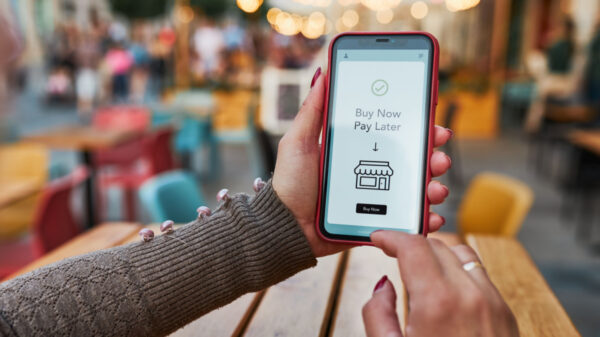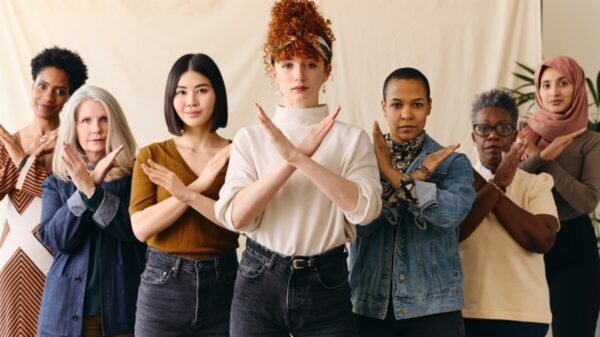The metaverse will permanently change the world of retail as we know it – for both consumers and business owners.
The metaverse – a collective of 3D worlds using virtual reality and augmented reality to visually ‘transport’ you to a digital place parallel to the physical world – will change the retail landscape.
This new space has become a breeding ground for brands and the retail industry to engage consumers in new ways.
In the Social Media Trends 2023 report by Talkwater and Khoros, Betsy Morse Rohtbart, vice president of global web and ecommerce at Vonage, said that the online shopping space is on course to exceed the physical shopping experience in total market size.
Middle East retailers must take note of the trends to succeed in the future.
Metaverse in the Middle East
A new global report commissioned by UAE-based technology company Ciena and conducted by Censuswide in June 2022 to explore peoples’ views on using more immersive and connected digital platforms in the workplace found Middle East respondents expressed an interest in using new immersive platforms for consumer-centric tasks.
Shopping was recorded as the primary reason to use the metaverse in countries such as as the UAE (57 per cent) and KSA (47 per cent) in the Ciena report.
Azz-Eddine Mansouri, general manager of sales at Ciena Middle East, in concluding the study and commenting on the overall impact of VR worlds for society overall, including retail, said: “Given the Middle East region has some of the world’s highest rates of tech adoption and digital penetration, virtual reality worlds will start to play a bigger role in the way we work and interact,” reports Arabian Business.
In the retail industry, Dubai, and the UAE as a whole, are leading the delivery of innovative shopping experiences that use AR and VR technologies.
Dubai, already a key global economic hub and the world’s leading investment destination as per a statement by Dubai Media Office last July, intends to firmly establish itself within the metaverse.
Earlier this year, the emirate announced the Dubai Metaverse Strategy, which aims to turn Dubai into one of the world’s top 10 metaverse economies as well as a global hub for the metaverse community.
This would support Dubai’s overall growth by creating 40,000 virtual jobs by 2030 and attracting help from more than 1,000 companies specialising in blockchain technologies.
The Strategy will promote the metaverse sector to economically contribute AED 14.69 million ($4 billion) to Dubai’s GDP.
One key sector that the Dubai Metaverse Strategy targets is retail.
Accordingly, Dubai is presenting a digital replica of the city in the metaverse in order to further enhance the retail industry by virtually simulating actions and decisions, such as physical shopping, before delivering items in the real world.
Omar Sultan Al Olama, minister of state for artificial intelligence, said: “Our population in the metaverse is already the same size as those in India and China, despite our smaller geographic size. This shows that we continue to punch above our weight as a nation,” reports Gulf Business.
“As we aim to become a top ten ‘metaverse’ economy, we will create a digital twin of Dubai to simulate our plans for tourism, real estate, education, retail and government services in the virtual world.”
The Dubai Metaverse Strategy also supports the development of relevant Web3 technology and its applications to develop vital sectors such as retail.
Web3 technology is an idea for a new version of the internet or World Wide Web that incorporates concepts like decentralisation, blockchain technologies, and token-based economics.
Retailers embrace the metaverse
For retailers who want to ride the meta wave, the simplest way to engage customers would be to recreate their physical or online store in the virtual metaverse for consumers to either shop real items or digital-only assets.
In a Metaverse Awareness Survey earlier this year, YouGov and Globant found that 24 per cent of respondents had increased their interest in a brand due to a metaverse experience.
Bally Singh, chief marketing officer at Everdome, a company creating a hyper-realistic metaverse said: “The metaverse offers the potential to build products and services, as, or around a hyper-real experience,” reports Gulf Business.
Retailers and brands can buy digital real estate ‘spaces’ in the metaverse exactly like in the real world. Popular retailers such as Nike and Zara alongside luxury brands like Balenciaga, have already reserved spaces in the metaverse.
Nike, for instance, acquired RTFKT, a digital sneaker brand that can be digitally worn on a user’s online avatar in the metaverse. The company also introduced NIKELAND, a virtual space within the video game Roblox, for players to digitally browse Nike’s collection.
PwC found that about 32 per cent of VR users shopped on VR platforms in the first half of 2022. One-third of VR users joined a virtual world to digitally experience a retail environment, whilst one-third also confirmed having purchased digital products after browsing or testing them in VR stores. Moreover, one in five surveyed used VR to purchase luxury goods.
Future of metaverse retail
Fully virtualised retail experiences are almost a reality. Soon metaverse users will be able to virtually select, try on, and purchase outfits before eventually receiving physical versions to wear in the real world.
In order for full-featured retail experiences to become mainstream, however, usage rates must increase to promote further software development and investment.
One can sample the metaverse through various methods such as using the Meta Quest 2 VR headset, VR displays in retail stores, and free smartphone or PC programmes. Nevertheless, although a VR headset would provide the most immersive experience, it is not yet affordable or simple enough for the average buyer.
How Retailers can prepare
Retailers must strategise to adopt the metaverse in order to take full advantage of future opportunities. To position your retail business for the future:
- Build your campaign, programme, or event around the notion of customisation and individuality. Allow for some room to integrate a brandactivation in the metaverse.
- Stretch and go beyond conventional limits. The metaverse is digital and unbound by physical rules, so do not simply recreate what already exists. Build your virtual world using creativity and imagination to design experiences that would not normally be pragmatic or possible.
- Consider sociality. Create simple lines for deep communication and expression when you build experiences. The metaverse is centred around self-expression and interactions through work, socialising, entertainment, and travelling.
These principles will help retailers to retain users and attract new audience bases and to provide safe, fun opportunities of engagement for users as the metaverse becomes more of a household staple.














